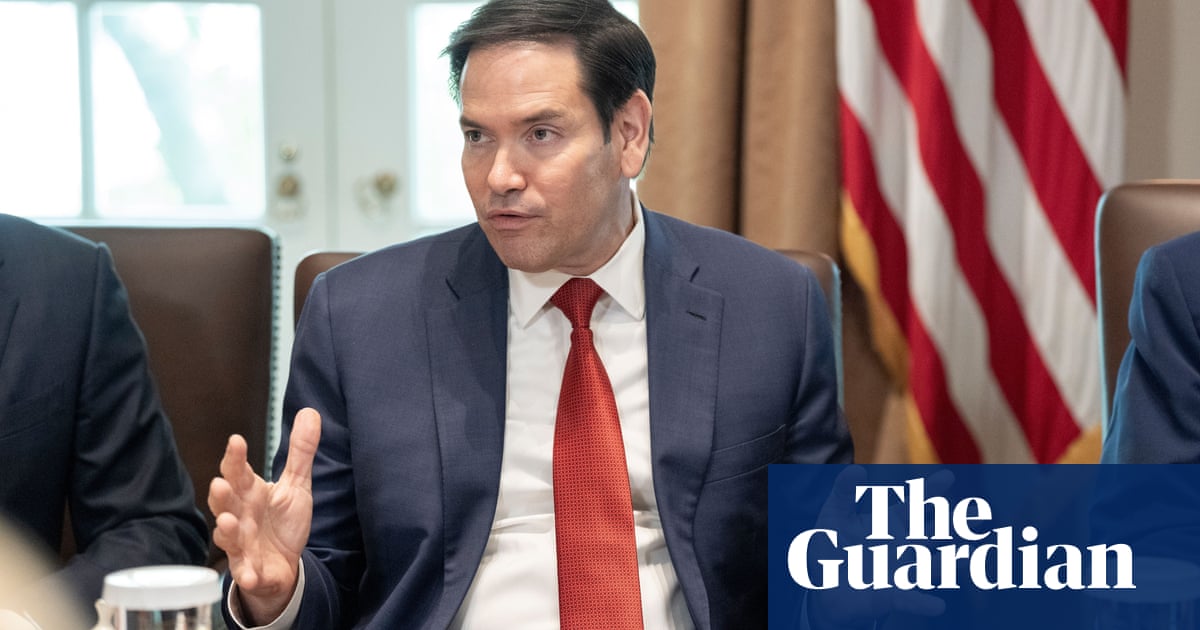Germany’s foreign ministry has pushed back after Marco Rubio criticised the country’s decision to designate the far-rightAlternative für Deutschland(AfD) party a “confirmed rightwing extremist” force incompatible with its constitution.
“This is democracy,” the ministry said in a post on X, adding that the courts would have the final say and that “we have learnt from our history that rightwing extremism needs to be stopped”. The US secretary of state had called the move “tyranny in disguise”.
The spat unfolded as the US continued its crackdown on pro-Palestinian free speech, with nine activists arrested at an encampment at Swarthmore College in Pennsylvania.
Here are the key stories at a glance:
Germany’s foreign ministry has hit back at the US secretary of state,Marco Rubio, after he called on Berlin to reverse course over a decision to label the far-rightAlternative für Deutschlandparty a “confirmed rightwing extremist group”.
On Thursday, Rubio took to X andwrote: “Germany just gave its spy agency new powers to surveil the opposition. That’s not democracy – it’s tyranny in disguise.”
The German foreign ministry pushed back in its own statement, saying: “This is democracy. This decision is the result of a thorough and independent investigation to protect our constitution and the rule of law.”
Read the full story
The Swarthmore borough police departmentdisbandeda four-day pro-Palestinian encampment on Swarthmore College’s campus and arrested nine activists.
The demonstration calling on the Pennsylvania college to divest from the tech company Cisco due to itsties to the Israeli governmentwas a rare uprising in an academic year where higher-education institutions have been quick to quash them.
Read the full story
A federal appeals court has foiled a plan to return more than 1,000 Voice of America (VoA) workers to their desks after an earlier court ruling granted a temporary stay onDonald Trump’s executive order dismantling the US taxpayer-funded news service for overseas listeners.
Read the full story
A “catastrophic” exodus of thousands of employees from the US Department of Labor threatens “all of the core aspects of working life”, insiders have warned, amid fears that theTrump administrationwill further slash the agency’s operations.
Read the full story
Voters in a small patch of south Texas voted on Saturday to giveElon Muska town to call his own, officially creating a new city called Starbase in the area where Musk’s SpaceX holds rocket launches.
Read the full story
The Texas governor,Greg Abbott,signed a lawon Saturday making more than 5 million students eligible to use state funds for private schools, a watershed moment in the conservative campaign to remake public education in the US.
A Guatemalan immigrant who crossed theUS bordereight months pregnant and gave birth inArizonahasavoided fast-track deportationafter intervention by the state’s governor.
Donald Trump posted an AI-generated photo showing himself as the popeahead ofthis week’s gathering of cardinalsto choose a new leader, drawing instant outrage on X.
Catching up?Here’s what happened on2 May 2025.
